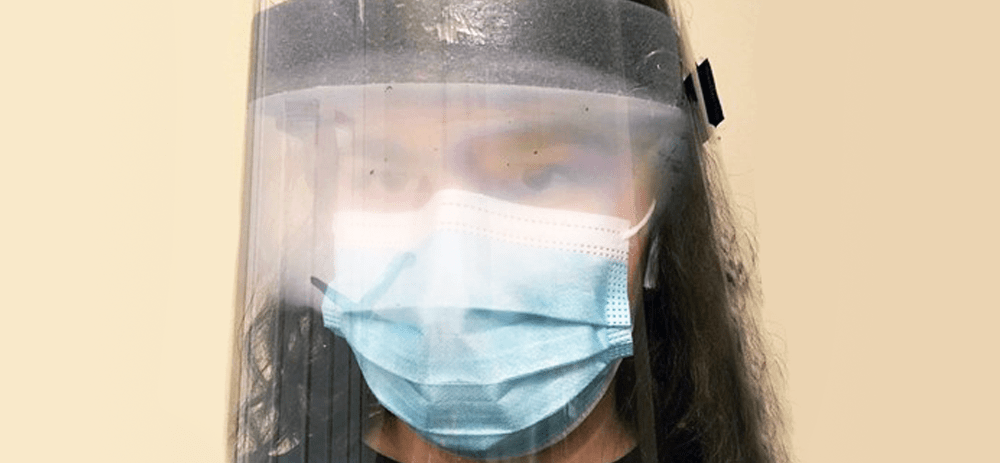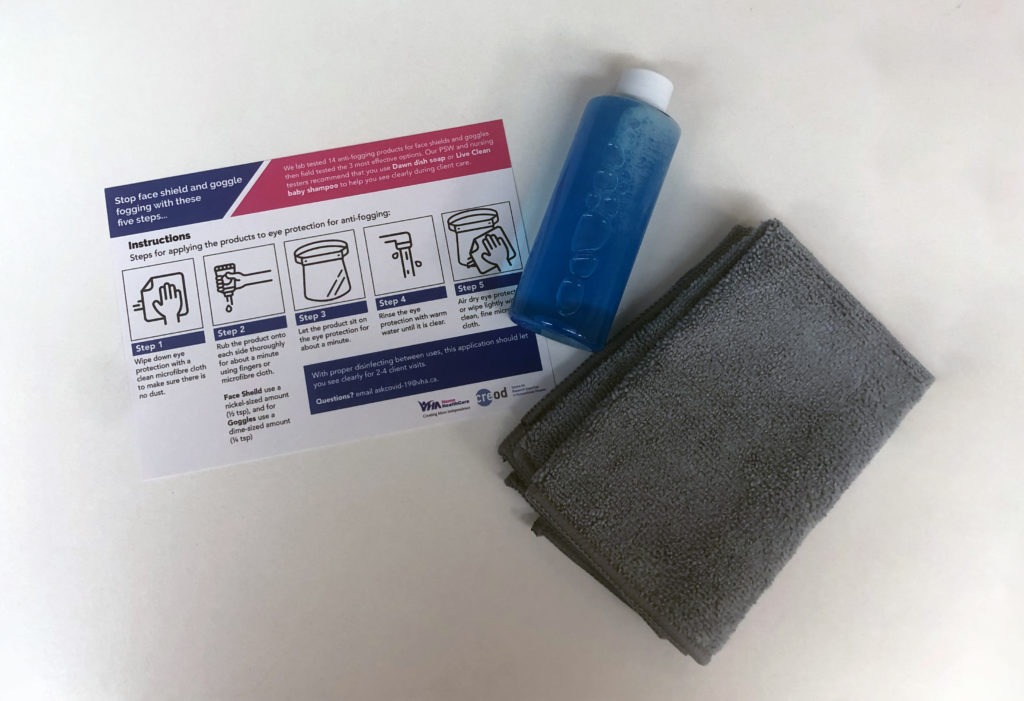“I can see clearly now the fog is gone!” Field testing project finds solutions for foggy eye protection for frontline health care workers

For well over a year, frontline home care staff have been wearing extra personal protective equipment (PPE) while providing care to keep everyone safe during the COVID-19 pandemic. VHA Home HealthCare (VHA)’s Research team surveyed Personal Support and Nursing staff to find out about their experience providing care while wearing masks and either face shields or goggles. Nearly 70% of the PSWs and nurses who responded shared that their goggles and face shields regularly get foggy and that this makes it harder to do their job.
“The Research team is committed to creating knowledge that will enable Better Care for our clients, and lead to Safer Teams of providers” says Emily King, Manager, Research Operations at VHA. “When we realized so many of our nurses and PSWs couldn’t safely provide care because they couldn’t see what they were doing, we knew we needed to find a solution.”
The team started by looking for ideas others might have tried for similar issues. They found medical professionals, swimmers and scuba divers who had shared their remedies on Reddit and treatments hockey and ringette players had used for similar challenges with head protection. “I tested 14 solutions and narrowed it down to 3 that seemed to work particularly well. I then ran additional tests on those, including diluting them and wearing eye protection for a longer duration after applying the solution,” shared Huda Ameer, Research Assistant. “We then reached out to nurses and PSWs to ask them to test the top remedies during care for a real-life test of how the solutions worked and whether they were practical to use.”
Ten personal support and nursing staff acted as field testers trying out each of the 3 treatments while providing client care, and then shared their experiences. The field testing led to a clear solution. VHA’s PSW and nursing testers recommend the use of Dawn dish soap or Live Clean baby shampoo to help everyone see clearly during client care.
“The dish soap Dawn is so easy to use,” said PSW Veronica Foisy. “I work in a retirement home and after applying it once it lasted for a full 8-hour shift with 4 showers.” And PSW Coach Joie Francisco shared “I have tried and tested the product in an extremely hot shower. The baby shampoo (Live Clean) gives clear vision for up to 3 clients.”

VHA’s Anti-Fogging Starter Kit which includes a bottle of cleaning solution, a microfibre cloth and an instruction card for applying these tools as anti-fogging solutions
Based on these field tests by personal support and nursing staff and their recommendations to their colleagues, the Research and Innovation teams collaborated to share and scale this solution.
“Financed by VHA’s Ideas to Innovation Fund, the rollout of over 2,200 anti-fogging kits was a true team effort,” says Head of Innovation Engagement, Pam Stoikopoulos, noting that the scale-up required support from several groups at VHA. The research and innovation teams collaborated to create communications materials, the innovation crew coordinated supply acquisition, modified duties workers (i.e. PSWs unable to work in the field) assembled the kits to perfection and VHA’s personal protective equipment (PPE) community hub team worked diligently to distribute to all point of care staff.
“The response has been very positive,” Emily added. “So far most people are telling us that this solution is working for them. We expect health care providers at other organizations are also experiencing these issues and we hope this will help them as well.”
All the findings are available on the VHA Research website at www.vha.ca/research/safer-teams/solutions-to-prevent-fogging-of-face-shields-and-goggles. Partners at the Centre for Research Expertise in Occupational Disease (CREOD) are helping to spread the word more widely. Further information is also available by reaching out to researchhelp@vha.ca.
